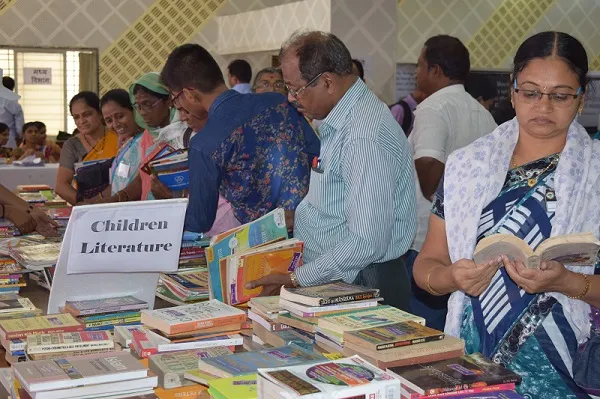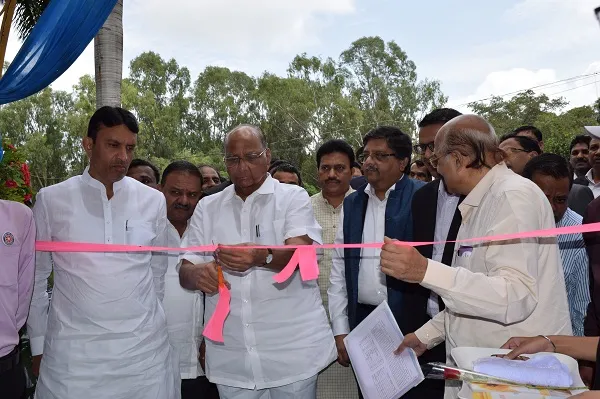Alibaba has entered India, but not for e-commerce
Partnering with Ratna Nidhi Charitable Trust, Alibaba is on a mission to donate a million books to underprivileged students in India.

Chinese e-commerce king Alibaba is known across the world for its multifarious businesses in B2B, B2C, digital wallet, logistics, and cloud software, among others, all of which have taken it to the league of internet giants like Amazon and Google. Alibaba’s entry to India has been long awaited and much discussed. The fact, however, is that Alibaba has already made its entry—not in business but charity.
Alibaba’s Founder Jack Ma himself was a school teacher. So it is no surprise that Alibaba’s CSR activities include efforts to encourage education. Alibaba's ‘Mission Million Books’ initiative aims to collect over a million books by 2020 and distribute the collected material to underprivileged schools and students.
In India, the project was launched in August 2016 with an idea to donate 5,000 books. But it grew much bigger. Now aiming to donate over a million books, the initiative has so far donated 2,00,000 educational books to 2,000 schools and colleges.

“Better quality education will enable the citizens to become entrepreneurs or scientists or doctors or engineers. So now we want to donate one million books for the benefit of the underprivileged. Access to quality education material will make a difference in their lives,” says Vinay Bhartia, Senior Vice President–Strategic Partnership, Alibaba.com.
Charity begins at home
Alibaba’s CSR goes beyond education. Since 2010, Alibaba Group has earmarked 0.3 percent of its annual revenue to fund efforts on environmental awareness and conservation, among others. In 2011, it established Alibaba Foundation, a private charity fund that focuses on supporting environmental protection in China and helping the disadvantaged, such as children born with heart defects, in underdeveloped areas of China.
In FY 2016, Alibaba Foundation donated over RMB210 million ($32 million) for various charitable initiatives. A statement from the company also said that Alibaba Group has leveraged its platform to facilitate other charitable organisations to raise over RMB190 million ($28 million) in donations.
Taobao, one of Alibaba Group's key marketplaces, focuses on helping individuals with disabilities set up small businesses and build careers by opening Taobao stores. Alibaba has developed special software for Taobao and Tmall users, which has enabled 2,70,000 visually impaired buyers to shop successfully online and over 16,000 visually impaired merchants to open stores on Taobao.
Additionally, since September 2015, Alibaba Group employees have performed minimum three hours of charitable activities every year. From the programme's inception until the end of the fiscal year 2016, this programme had seen over 1,30,000 hours of social service performed by Alibaba Group's employees, a statement from the company has said.
Roles for each
In India, not every student is fortunate enough to have access to quality educational material. Although the government has initiated various campaigns to address these challenges, it is also important for private players to contribute to enhancing the quality of educational material for students. This is the thought process that gave birth to Mission Million Books.
“Many kids across metros and rural areas don’t have access to quality education. We are committed to projects both through charitable trusts and the ecosystem at large,” says Vinay.
In India, Alibaba Group has tied up with Ratna Nidhi Charitable Trust, which is in the domain of collecting and donating books. It has also partnered with Kotak Mahindra Bank, Retailers Association of India, Paytm (in which Alibaba is an investor), World Bank, Ecom Express, Book Project, Carnival Cinemas, TicketNew, and UCWeb (which is Alibaba’s product).
Kotak Mahindra spreads awareness among its customers, while Ecom Express takes care of pick-up and logistics processes for donation. Carnival Cinemas also reaches out to its patrons with messages before movies and during intervals.

Together, Alibaba and the trust have purchased and donated 75,000 books from across India. “We accept donations and also bought some reading material ourselves for students in school as well as higher professional courses like medicine—reference books, text books, educational books, and general reading material,” Vinay explains.
The trust is responsible for collecting the books, sorting them into subjects, topics, grades, and languages, as well as inviting the leading colleges and educational institutes to donate. They also organise the donation events for the less privileged colleges and schools. Publishers and distributors donate books too.
The initiative makes no differentiation in areas, whether rural or urban. The three regions that have been covered so far are multiple locations in Mumbai, Baramati in Pune, and Satara district (in Maharashtra). In Mumbai alone, they have donated books to 100 institutions including colleges and schools as well as Teach For India and schools for mentally challenged children.
India's education sector needs great attention, and Alibaba’s efforts could be a step in the right direction.







